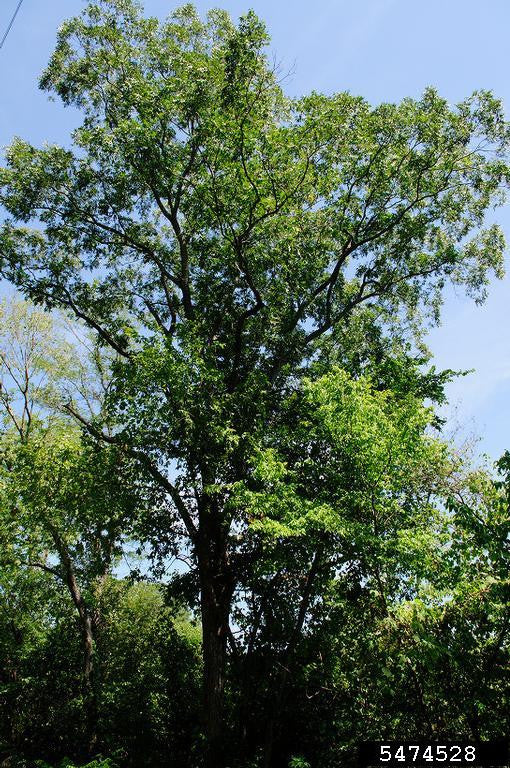Bareroot Plant Material
Pecan
Pecan
Couldn't load pickup availability
25 plants per unit
Carya illinoensis, or Pecan, is native to the mid-western states and the Southern Great Plains including Southeast Kansas. It is a large tree with a broad, round crown reaching a height of 80 to 100 feet. Pecan has a moderate rate of growth on moist sites. It may take several years for the roots to get established before it grows much in height.
Leaves, Stems and Fruit
The compound leaves are 12 to 20 inches long and are borne alternately on the stem. They have 9 to 15 individual leaflets, each one curved to a tapering point. They are dark green above and pale green below and, when crushed, have a very distinct aromatic odor. The fruit is a nut, 1 1/2 to 3 inches long, growing in clusters of three to eight, ripening from October to November. Both male and female flowers are found on the same tree. The bark is grayish-brown to light brown forming a pattern on individual trees varying from relatively smooth to deep, narrow, irregular fissures.
Use
Timber - Pecan is an excellent timber species in the southeastern part of Kansas. This hardwood is used in the production of high quality paneling and furniture. The nuts are highly prized for their food value, making them an important cash crop.
Wildlife Habitat - Pecan nuts are a favorite food source of squirrels and various types of birds.
Adaptation and Soil
Pecan has adapted statewide and grows best on deep, fertile bottomland soils. It tolerates many wet soils even when ponded during spring and overflow periods. Growth is greatly restricted on upland droughty sites.
Spacing
Spacing for timber and nut plantings may vary from 8 x 8 feet to 15 x 15 feet. Periodic thinnings during the life of the stand are used to reduce the number of trees for maximum productivity.
Culture
One-year-old, bare root seedlings, 18 to 24 inches tall or stratified nuts (those that have undergone cold treatment) are used in plantings. Pecan can be planted successfully if the site is properly prepared, and good weed control is practiced. Initial growth is slow but accelerates once the root system becomes established. If you prefer to plant seed, Pecan seeds must be stratified before they will germinate. Soak the seed in water for 24 hours, place them in a water retaining medium (i.e. moist peat moss, ziplok bag, etc.) and hold them at 33 to 41 degrees for 90 days. Stratified Pecan nuts may be planted rather than seedlings if adequate protection from rodents is provided. Squirrels often dig up unprotected nuts. It is best to plant at least two nuts at each planting spot to ensure proper stocking rate.
Pests
Pecan leaves are a favorite food of the tent caterpillar. Several pests, such as the shuck worm and weevils, may cause damage to the nuts if not controlled. Generally, diseases are not a serious problem.



